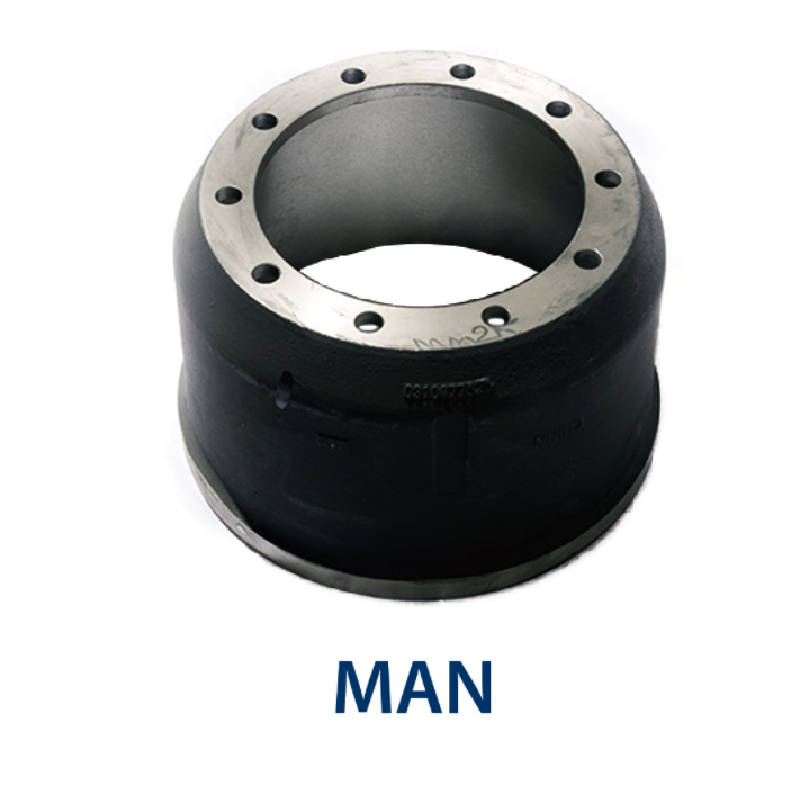Dis . 22, 2024 01:54 Back to list
rear brake drum noise
Understanding Rear Brake Drum Noise Causes and Solutions
Brakes are one of the essential safety features of any vehicle, and maintaining their functionality is crucial for safe driving. Among various brake systems, rear drum brakes are common in many older and some newer vehicles. While generally reliable, they can sometimes produce noise that can be concerning for the driver. In this article, we’ll explore the causes of rear brake drum noise, its implications, and potential solutions.
What is a Brake Drum?
Before diving into noise issues, it's important to understand what a brake drum is. A brake drum is a component of drum brake systems. It is a cylindrical metal part that rotates with the wheel, and when the driver presses the brake pedal, brake shoes expand against the inner surface of the drum to create friction, thereby slowing down or stopping the vehicle.
Common Causes of Rear Brake Drum Noise
1. Worn Brake Shoes One of the most common causes of noise in a rear drum brake system is worn-out brake shoes. As the brake material wears thin, it can create a screeching or grinding noise when engaged. This wear can be exacerbated if the vehicle is frequently driven in hilly areas or if heavy loads are carried regularly.
2. Dust and Dirt Accumulation Brake dust can accumulate inside the drum, leading to a gritty sound when the brakes are applied. It’s essential to clean the brakes periodically to prevent this buildup. Dusty conditions and frequent braking can increase this risk.
3. Moisture and Corrosion If moisture seeps into the brake drum, it can cause rust to form. When the brakes are applied, rust can create a grinding noise that can be alarming. This is especially common in areas with high humidity or frequent rain.
4. Improper Installation If brake shoes or drums are not installed correctly, it can lead to uneven wear and result in noise. Rattling or clanging sounds can indicate that components are loose or misaligned.
5. Lack of Lubrication Certain parts of the brake assembly require lubrication to function smoothly. For example, the backing plate should have anti-squeal lubricant on the contact points of the brake shoes. Failing to lubricate these parts can lead to noise and increased wear.
6. Warped or Damaged Drum Brake drums can warp due to excessive heat generated from consistent braking. A warped drum can create a thumping sound when the brakes are applied. Additionally, if the drum is damaged, this can lead to vibration and noise.
rear brake drum noise

Implications of Ignoring Brake Noise
Ignoring noise from the brake system can lead to more significant issues. If the brake shoes are severely worn, the metal backing can come into contact with the drum, causing further damage and potentially leading to brake failure. Additionally, noise can indicate that the vehicle is not operating efficiently, which could affect fuel consumption and overall vehicle performance.
Solutions to Rear Brake Drum Noise
1. Regular Inspection Regular brake inspections are crucial. Mechanics can identify wear and tear before they become a major issue. It’s advisable to have your brakes checked at least once a year.
2. Replacement of Worn Components If worn brake shoes are the culprit, replacing them promptly is essential. It’s advisable to replace shoes in pairs (front or rear) to ensure even braking and prevent uneven wear.
3. Cleaning Cleaning the brake assembly can help eliminate dust and debris that may cause noise. A simple service can involve removing the drums and cleaning the internal components.
4. Lubrication Ensure that proper lubrication is applied to the necessary components. This can significantly reduce noise and improve brake performance.
5. Professional Help If you’re unsure about diagnosing brake noise, seeking help from a qualified mechanic is advisable. They can provide a thorough examination and recommend appropriate repairs.
Conclusion
Rear brake drum noise can be concerning for any driver, but understanding its causes can facilitate timely action and maintain vehicle safety. Regular maintenance, inspection, and being attentive to unusual sounds can ensure that your braking system remains in optimal condition. Remember, when it comes to brakes, it’s better to be proactive than reactive, ensuring a safe driving experience for you and your passengers.
-
Durable Brake Drum MAZ for Heavy Duty Trucks | High Performance
NewsAug.26,2025
-
FUWA: Premium Quality, Reliable Performance & Innovative Solutions
NewsAug.25,2025
-
Liza Brake Drum: Superior Quality & Performance for Safe Driving
NewsAug.24,2025
-
Iveco Brake Drum | Premium OE Quality for Daily & Eurocargo
NewsAug.22,2025
-
Your Brake Drum Man: Quality & Performance Parts
NewsAug.21,2025
-
Explore Japan: Ultimate Travel Guide & Authentic Experiences
NewsAug.19,2025
